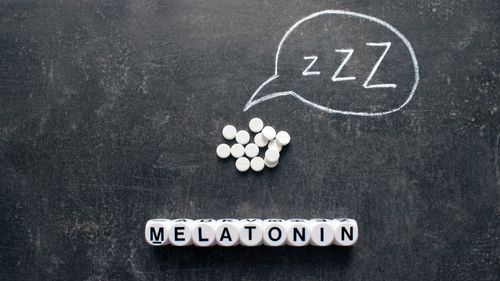Melatonin, a widely-accessible drug often used as an agent against sleep disorders, may be an effective treatment for COVID-19 in both managing serious disease and acting as a preventative agent, a large review suggests. The authors believe evidence points to melatonin being a cheap and available option to battling COVID-19 deaths and hospitalizations, filling a void that is sorely lacking in treatment options for the virus.
The review was published in Cellular and Molecular Life Sciences.
As the pandemic continues, the search for a treatment for severe cases has eluded scientists. Preventative medicine has made huge strides with the development of the mRNA vaccine, but with such high case numbers and common comorbidities resulting in hospitalizations, a treatment option for those most severely affected is still required.
Melatonin has been repeatedly highlighted as a potential COVID-19 therapy for severe disease, owing to its broad antiviral properties but also its lack of toxicity. Ongoing clinical trials aim to test just how effective it is when used in humans, but results have suggested some positive outcomes when using the drug on hospitalized patients.
The review makes an argument for melatonin use in a broad spectrum of cases, beginning with patients who develop sepsis.
Sepsis can occur when the body has an extreme response to systemic infection. As inflammation causes widespread damage to major organs, sepsis can develop into septic shock.
Sepsis and septic shock are common causes of death in COVID-19 infected people, and evidence suggests melatonin may be able to help by inhibiting the cytokine storm that causes this immune overreaction. Severe COVID-19 cases also commonly precede infection by bacterial and fungal pathogens, which studies have shown melatonin can help to tackle.
Melatonin also inhibits a protein called HIF1-α which is heavily implicated in patient mortality and cytokine storms triggered by serious COVID-19 infection. Elevated HIF1- α is thought to be involved in damage to the lungs and other organs before total organ failure, and current hypotheses suggest that melatonin may reduce respiratory damage through inhibition of this protein.
While the drug appears to have all the tools for fending off COVID-19 and resulting infections, clinical trials remain ongoing and limited real-world data is available to suggest the hypotheses are true.
Trials are using various doses of melatonin, ranging from two milligrams (a standard dose available already) to 600 millgrams, and positive results have been reported showing that even high doses remain safe. Six trials have now shown higher positive outcomes in melatonin-treated patients, with higher blood oxygen levels reported while decreases were seen in mortality and sepsis.
The authors acknowledge that although evidence strongly suggests efficacy of melatonin versus COVID-19, improvements need to be made to the study designs of future trials. Most of the data currently available is not from double-blind studies, meaning there is a possibility that bias exists in some of the results.




